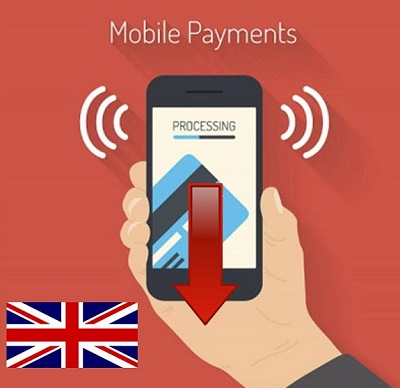Recent study finds that UK consumers are not sold on the idea of mobile commerce
Despite the fact that more businesses are beginning to enter the mobile commerce space, consumers in the United Kingdom may not be following suit. A recent study from eMarketer shows that many consumers are still not convinced that mobile payments are viable or convenient. A similar report from Bain & Co. found that only 3% of UK Internet users had used their mobile devices to pay for goods and services in February of 2014.
Mobile commerce remains an uncomfortable subject for many people
Mobile commerce is often praised for its convenient nature, but it also receives some harsh criticism because of the security issues that exist within the mobile space. Companies participating in mobile commerce have, to some degree, been the reason for this criticism. Some companies have tried to bring their own mobile payments platforms to the commercial market, but many of these platforms have been poorly designed and were crippled by serious security faults. Poor experiences have left many people with a sour opinion of mobile commerce, which is quickly becoming something that they want to avoid.
Consumer awareness of mobile services and payments is not lacking
 The study found that awareness is not a problem when it comes to mobile payments. Approximately 55% of consumers are aware of the mobile commerce services that are available to them, but few of these people are willing to participate in mobile commerce, favoring instead their credit cards and other traditional forms of commerce. Consumers also seem to be quite leery of the mobile commerce services that are available to them, especially those that involve the use of digital currency.
The study found that awareness is not a problem when it comes to mobile payments. Approximately 55% of consumers are aware of the mobile commerce services that are available to them, but few of these people are willing to participate in mobile commerce, favoring instead their credit cards and other traditional forms of commerce. Consumers also seem to be quite leery of the mobile commerce services that are available to them, especially those that involve the use of digital currency.
UK businesses must solve mobile security problems before consumers embrace mobile commerce
UK businesses have high hopes for mobile commerce, but whether these hopes will ever be actualized is difficult to say for sure. Currently, security is one of the most significant issues that the mobile commerce space is facing. If security issues cannot be resolved, consumers are unlikely to ever become supportive of mobile commerce.
Consumers are growing fonder of mobile shopping as retailers change their behavior
Consumers are becoming increasingly adverse to traditional forms of commerce, according to research from PayPoint, a provider of multi-channel payment solutions. This trend has been going on for some time, with consumers showing more interest in online forms of commerce over more traditional forms of commerce. In particular, mobile payments have been growing in popularity at a rapid rate, due to the growing prominence of mobile technology and the availability of new payment services being offered to consumers throughout the world.
19.6% of all transactions to come from mobile devices by 2019, according to PayPoint research
Mobile commerce is expected to see a significant degree of success in the United Kingdom in the coming years. According to PayPoint’s research, an estimated 19.6% of all transactions made throughout the country will come from mobile devices by 2019. Currently, some 9.3% of transactions are conducted through a mobile device. Consumers are becoming more comfortable with the concept of mobile commerce, especially as they see retailers and other organizations taking steps to make online shopping more secure and convenient.
Retailers are beginning to adapt to a mobile-centric society
 Retailers have been noticing a shift in consumer behavior over the past several years. Many people are becoming mobile-centric, relying heavily on their smartphones and tablets to function in daily life. This has lead to a growing demand for mobile services, which cater to these consumers in particular ways. Retailers have been taking steps to adapt to changes in their given market by embracing mobile technology themselves.
Retailers have been noticing a shift in consumer behavior over the past several years. Many people are becoming mobile-centric, relying heavily on their smartphones and tablets to function in daily life. This has lead to a growing demand for mobile services, which cater to these consumers in particular ways. Retailers have been taking steps to adapt to changes in their given market by embracing mobile technology themselves.
Consumers are still somewhat wary of mobile shopping due to past problems
Finding success in the mobile commerce field has been a challenge. Security issues have steered many people away from mobile payments, while poor online shopping experiences and other problems have done the same. Consumers have shown that they are willing to participate in mobile shopping, but only if the services being offered to them are convenient and mostly problem-free. Poor shopping experiences can discourage consumers from participating in mobile commerce in any significant fashion.
 The study found that awareness is not a problem when it comes to mobile payments. Approximately 55% of consumers are aware of the mobile commerce services that are available to them, but few of these people are willing to participate in mobile commerce, favoring instead their credit cards and other traditional forms of commerce. Consumers also seem to be quite leery of the mobile commerce services that are available to them, especially those that involve the use of digital currency.
The study found that awareness is not a problem when it comes to mobile payments. Approximately 55% of consumers are aware of the mobile commerce services that are available to them, but few of these people are willing to participate in mobile commerce, favoring instead their credit cards and other traditional forms of commerce. Consumers also seem to be quite leery of the mobile commerce services that are available to them, especially those that involve the use of digital currency.
 Retailers have been noticing a shift in consumer behavior over the past several years. Many people are becoming mobile-centric, relying heavily on their smartphones and tablets to function in daily life. This has lead to a growing demand for mobile services, which cater to these consumers in particular ways. Retailers have been taking steps to adapt to changes in their given market by embracing
Retailers have been noticing a shift in consumer behavior over the past several years. Many people are becoming mobile-centric, relying heavily on their smartphones and tablets to function in daily life. This has lead to a growing demand for mobile services, which cater to these consumers in particular ways. Retailers have been taking steps to adapt to changes in their given market by embracing 